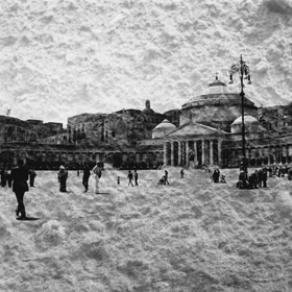Cristina Cusani
Artist, Napoli, Italy, joined 16 years ago
Tufa is volcanic expectoration, secretion from its smoke stack. It covers the entire crust of the gulf, the entire sea floor. Naples was built on top of the rough cough of eruptions and quakes.
I have worked with tufa on constructions sites. It is a thirsty stone that, when wet, doubles in weight; it can be cut in square blocks with an iron tool or even with the teeth of a saw. This is why the city helped itself to so much of it by digging below to build on top.
Entire civilizations have used these stones for fortifications and houses. But tufa is not a stone; it is the sediment of matter in flames, spit out and cooled down by the sun. It is a cork of earth that seals well and helps to breathe, and it is good for burial grounds and storage spaces alike. It is the material from which the character of our place of origin and its inhabitants is built.
Cristina Cusani brings the pyroclastic texture to life that supports and sustains our bones and our nightmares. There is tufa in the prevailing northwest wind and in the sirocco, in the waves of our sea and in the wrinkles on our faces. There is a sulfur-like tufa in the wrath of the irritable and incendiary city; there is tufa in the immensity of her patience.
For once and for all a visionary young woman denounces it. It is our nitrogen, inert matter that attached itself to oxygen in order to transport it through our blood stream. It is not our soul, that tufa; it is our ballast that prevents us from being lifted up into the air on the back of violent southwest winds. It is not our soul; it is the salt that clings to our soil.
Tufa left for other lands inside the holed and patched pockets of our emigrants who descended by the millions inside third-class ships’ holds only to come up for air after an ocean or two. Tufa is what brought them back, either defeated or fortunate, because tufa returns to its origins.
Tufa is inside our speech that is rough and truncated in street vendors and poets alike who must do the best they can with few syllables. So thank you, Cristina Cusani, for allowing us to find it scattered and written underneath our place of origin. For as much as it seems dense and compact, this dwelling of ours, its tufa sends the message that it is deserted and that we are but seasonal growths, less attached to it than lichen.
erri de luca
(traduzione Myriam Swennen Ruthenberg)
News
celeste,




















